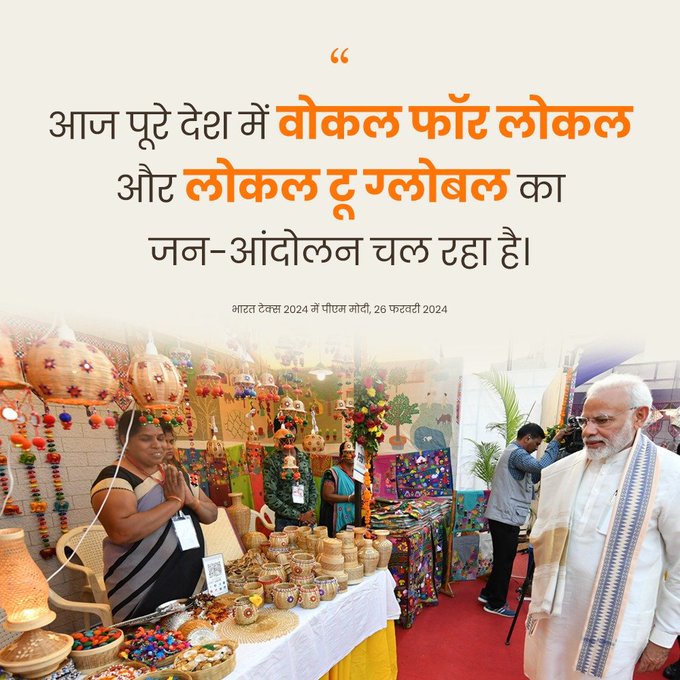Prime Minister Narendra Modi on Monday inaugurated Bharat Tex 2024, a global textile event being held at Bharat Mandapam in Delhi from February 26 to 29.
In his address, PM Modi highlighted India’s prominent position as a leading producer of cotton, jute, and silk, reaffirming the government’s commitment to supporting millions of cotton farmers and initiatives like Kasturi Cotton to enhance India’s textile identity.
He outlined the government’s initiatives to support the textiles sector, focusing on tradition, technology, talent, and training to align traditional designs with modern demands. PM Modi emphasized the ‘Five Fs’ concept – Farm to Fiber, Fiber to Factory, Factory to Fashion, Fashion to Foreign – to streamline the textile value chain. He also highlighted changes in the MSME definition and initiatives like direct sales and online portals to boost the sector.
PM Modi highlighted plans to establish seven PM MITRA Parks across states to create opportunities for the textile sector and stressed the importance of Khadi and welfare schemes in driving development.
Emphasizing technology, mechanization, uniqueness, and authenticity in the textile industry, PM Modi stressed skill development and scale expansion, with the establishment of more NIFT institutes and training programs for weavers and artisans. He also mentioned schemes like Samarth, focusing on capacity building and skill development.
Regarding ‘Vocal for Local,’ PM Modi highlighted government efforts to promote small artisans through exhibitions and malls. He commended the textile sector’s contribution during the Covid pandemic in meeting global demand for PPE kits and face masks.
Bharat Tex 2024 serves as a platform to showcase handloom and handicraft traditions from various states, including Uttar Pradesh, Maharashtra, Gujarat, Telangana, and Madhya Pradesh. The event features state pavilions from Andhra Pradesh, Tamil Nadu, Karnataka, and Assam, showcasing the diverse textile ecosystems across India.
Uttar Pradesh and Maharashtra have been designated as ‘partner states,’ acknowledging their pivotal role in India’s textile sector. Additionally, Gujarat, Telangana, and Madhya Pradesh have joined as ‘supporting partner states,’ enriching the array of textile offerings at the event.
(Inputs from ANI)














